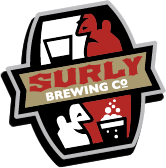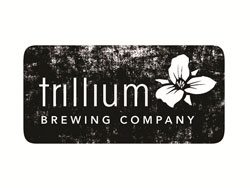
Surly Brewing’s new $34 million facility in Minneapolis will be fully operational within a couple weeks, pending the installation of its packaging equipment, according to a report from MPR News. The facility, the article adds, will enable the Minnesota-based brewery to quadruple capacity from 42,000 barrels per year. Additionally, the new brewery will feature a restaurant that has room for 90 people, a main beer hall that seats 216 more, and an event center fit for another 130. Surly hopes the place will serve as a tourist destination, but the new brewery is only legal in the first place thanks to a somewhat recent change in state law: In 2011, Surly lobbied to change the state’s liquor laws to allow for breweries to sell beer directly to the public. Prior to the law change, breweries could only give away free samples, the article adds.
MillerCoors and Drizly Offer Twitter Users Free Beer Delivery
As reported by Brewbound earlier this month, MillerCoors has teamed up with Drizly, a startup on-demand alcohol delivery service out of Boston, to deliver beer direct to the doors of consumers in Boston, Seattle, New York, and Washington, D.C. Now, with playoff football days away, the two companies are offering free delivery through a promotional campaign on Twitter, according to the Chicago Tribune. How it works: Twitter users are targeted based on whether they follow other alcohol brands on the social networking website, and if they’re also tweeting about their favorite teams. That user would then be shown a promoted tweet, prompting them to purchase Miller Lite through Drizly with the delivery fee covered by MillerCoors. It might be interesting to see if fans in Boston and Seattle — cities with teams in the playoffs — utilize the service more than D.C. and Chicago, whose teams’ seasons ended pitifully.
Beer Delivery Could Be Made Legal in Pennsylvania
The Pennsylvania Liquor Control Board earlier this month ruled that establishments that sell alcohol in the state are now allowed to deliver beer to consumers. According to Pittsburgh Business Times, such establishments can now acquire transporter-for-hire licenses, enabling them to deliver beer directly. “For many years, the Bureau of Licensing took the position that you can not own a restaurant and be a transporter for hire,” Mark Flaherty, a principal of Flaherty & O’Hara PC, a law firm that specializes in liquor law, told the website. “[It said] I can buy beer to go. But you could not (as a business) deliver that beer to a customer in the past.” All deliveries must be paid by credit card, the article adds.
Breweries Back ‘Arizona Beer Bill’
A number of breweries in Arizona are backing what has been dubbed the “Arizona Beer Bill,” a piece of legislation that would allow microbreweries to keep their restaurants, pubs and employees once they cross the 40,000 barrel threshold. Currently, according to the Daily Courier, “it’s unclear whether beer producers that grow to make more than 40,000 barrels of beer annually can continue to own or operate off-site restaurants or pubs.” The bill would clarify that they can.

Boston’s Trillium Brewing has reopened for business following a month long closure imposed by state regulators after the brewery had spent much of the year operating without its “farmer-brewery” license. According to the Boston Globe, the brewery had been operating without a license and thus illegally for most of 2014. Last week, the state’s Alcoholic Beverages Control Commission accepted a belated license application from the company, allowing them to resume operations immediately.
Tree House Expands
Change is afoot at Tree House Brewing in Monson, Mass. In an update posted to the brewery’s blog last week, co-founder Nate Lanier detailed the company’s plans to expand its production facility, begin canning and bottling, and expand distribution further into the state where it’s exclusively sold. Additionally, the company plans to launch a mixed fermentation barrel program. A timeline for the changes is unclear, wrote Lanier, adding the build out is 95 percent done and equipment is “nearly all in place.”